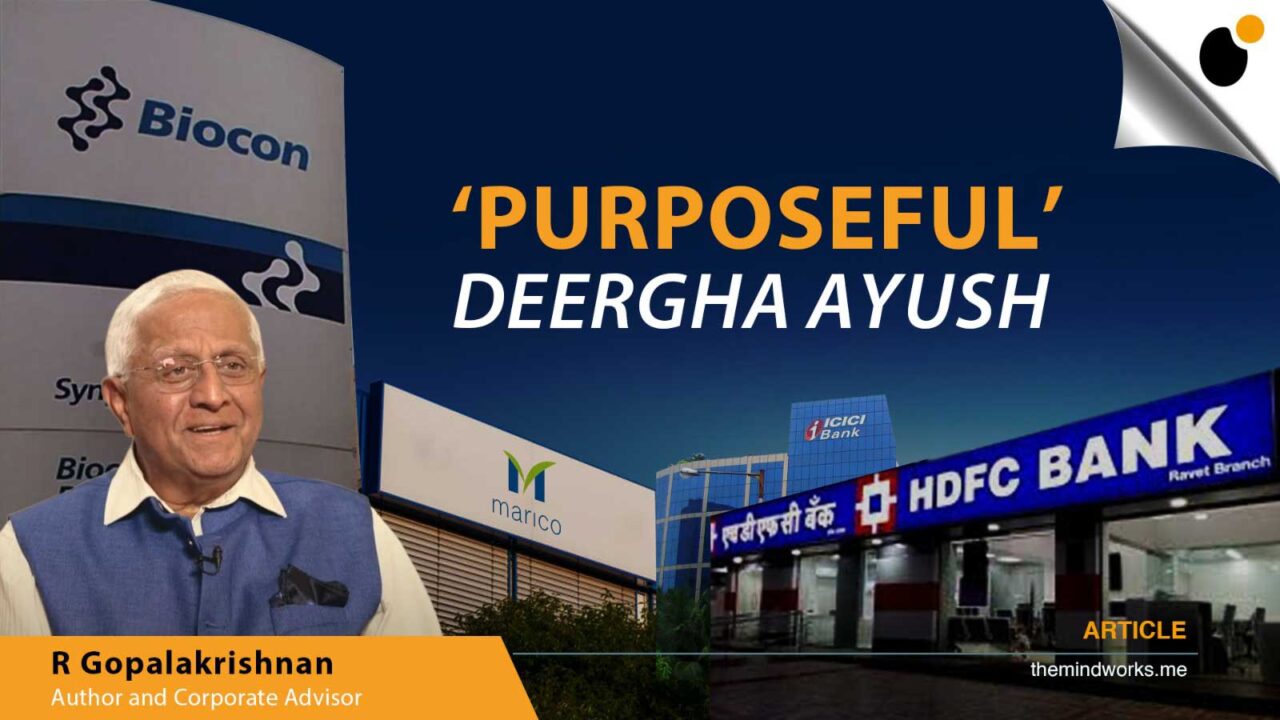24th March 2008, ECONOMIC TIMES
As the Dutch firm Akzo Nobel assimilates its latest acquisition, the famous ‘ICI’ brand will fade into history. Along with HLL and ITC, ICI pioneered the management profession in India for eight decades. Despite some initial similarity, the divergent destinies of these British subsidiaries exemplify lessons in corporate strategy, which is about the choices made over time.
Thirty years ago during the License Raj, India was an enigma for global companies. In response, ICI India changed CEOs relatively often and moved closer to the parent, leading to an unintended choking of the subsidiary. HLL had long-serving CEOs, who balanced local and global priorities and persisted in keeping alive the flagging interest of Unilever. ITC management’s actions resulted in spinning the company out of the parent’s control.
ICI:
Early into the 20th century, the chemical industry was like today’s software industry. It attracted large research expenditure, was the fast-growing industry, and fascinated people with its technology. Four British companies became very successful: Brunner Mond (now owned by Tata Chemicals), Nobel Explosives, British Dyestuffs, and United Alkali. An irascible Glaswegian, Harry McGowan, amalgamated the four companies into a giant called Imperial Chemical Industries with 33,000 employees in 1926.
The Registrar of Companies objected to the use of ‘Imperial’ in the company’s name. Harry McGowan responded, “The name was chosen after very careful consideration…we are ‘Imperial’ in aspect and in name….this Company will be of enormous value in the economic position of the Empire…” The company developed a technically oriented culture: over 70 years, it owned 33,000 patents. One of its research leaders said, “The world can be changed in the laboratory, not in the marketplace.”
Up to the late seventies, the ICI group of companies was the largest multinational company operating in India, bigger than HLL and ITC. A career in ICI India was very prized and the ICI managers enjoyed operational freedom. Their actions were appropriate for the Indian market; they established subsidiaries to manufacture diverse products like synthetic fibers, fertilizers, explosives, and pharmaceuticals; ICI brands like Terene, Alkathene, and Savlon became household names.
After the premature death of JM Lal, ICI posted expatriate CEOs, who had relatively short tenures; for
them, India was a hop-step in a global career (there were Indian CEOs from 1978-1987). ICI aligned itself to
the parent’s priorities and product strategies and began to lose management vitality.
In 1959, JM Lal became the first Indian professional manager to be appointed as the CEO of any multinational company in India. Some of today’s successful CEOs are ICI alumni, for example, Ishaat Hussain (Tata Sons), Adi Engineer (Tata Power), Prasad Menon (Tata Chemicals), Ashok Soni (Voltas) and Ranjit Shahani (Novartis).
In 1991, when the Hanson Group bought a small, but threatening stake in ICI, a shaken-up management acted rapidly; they de-merged into 2 companies, ICI and Zeneca. Later, ICI made a highly leveraged acquisition of a specialty chemicals business and sank into a pit of debt, thus affecting ICI India’s degrees of freedom. By the time the parent could restore its balance sheet, the company was, as The Economist put it, “no longer imperial nor chemical nor even an industry.”
Then Akzo Nobel then made a successful bid for ICI—a bell weather of the London Stock Exchange passed into history..
ITC:
Imperial Tobacco was the second ‘imperial’ company in India. Even before the Second World War, four factories had been established. Ajit Haksar, a 1948 Harvard MBA, rose to be the first Indian CEO in 1971 like JM Lal did in ICI.
Haksar recalled the atmosphere when he joined, “BAT looked at its investment made in India in 1902 as giving them the right to exploit the Indian company without the willingness to put in fresh capital and continue risk taking.” Haksar adopted an independent path from BAT. Sartorially, he shunned the western business suit; the Indian company diversified into unfamiliar areas like hotels. Strangely, BAT seemed disinterested; perhaps they could not properly judge Indian policies. With deregulation in the nineties, ITC planned to morph into an Indian MNC. BAT asserted itself and expressed opposition, but the management successfully deployed all sorts of tactics and kept BAT at bay.
Over thirty years and three Indian chairmen with an average tenure of 10 years, Imperial Tobacco became India Tobacco and, finally, ITC. In the last decade, serious legal tangles were resolved and business areas like retailing and consumer products were started. ITC has recorded the best growth among these three companies, but its somehow, its methods have always been viewed as controversial.
HLL:
Unilever was formed in 1931, just 5 years after ICI, by an Anglo-Dutch merger. Unilever localized capital, management and product strategy in its overseas markets. For several decades after 1961 when Prakash Tandon became the first Indian CEO, a succession of CEOs with an average tenure of 8 years became iconic figures in India’s corporate scene; these CEOs saw India as their janma and karma bhoomi through a passion to do the right things for both India and Unilever.
An example was the relentless battle by T Thomas and Ashok Ganguly to get Unilever a 51% foreign equity under FERA. Another example was the diversification into non-traditional activities like chemicals, fertilizers and exports. Unilever appointed Indians as CEO. Consistently for thirty years, it even appointed Indians to the parent board.
HLL alumni have enriched the Indian corporate world in diverse ways. Prakash Tandon and S Varadarajan headed government companies, while PM Sinha and CY Pal led private sector companies. Several of today’s companies are headed by HLL alumni: Hindalco, Lafarge, MICO, Castrol, Agrotech Foods, Glaxo, Nokia, Rallis, Cadbury, and RayBan.
As a school for CEOs, HLL is truly astounding because ‘mere soapers’ have adapted to such a wide range of industry sectors.
As brand ‘ICI’ fades away, the journeys of these three companies offer valuable lessons.


